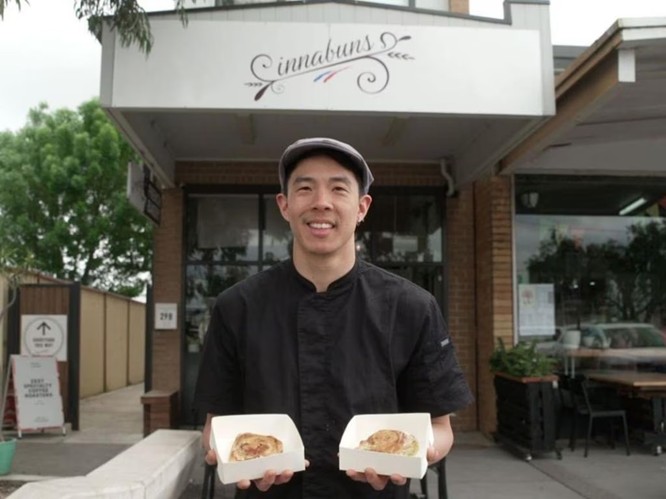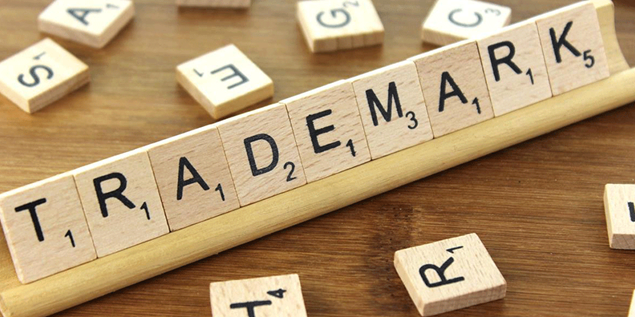A bakery in Melbourne found itself on the world stage after receiving a cease-and-desist letter from dessert behemoth Cinnabon. The company purported that the little suburban bakery of Cinnabuns was infringing on its well-established trademark.
The Cinnabuns trademark dispute sparked a fire on both sides, raising questions about how far big corporations would go to protect their brand identity. For small business owners like Mike Ying of Melbourne, the dispute highlights the insecurity of trying to compete in a global franchise-dominated market.

Melbourne bakery Cinnabuns faces a Cinnabon trademark dispute, gaining attention
Why Is Cinnabon Targeting A Small Bakery?
Cinnabon claims that Cinnabuns’ name is too close to its own name. The multinational chain insists that both names sound and look alike, thereby causing potential consumer confusion.
According to Cinnabon, which has trademark registered since the 1980s, it has exclusive rights under that name worldwide. This means customers might get misled into thinking Cinnabuns is either associated with or endorsed by Cinnabon.
Given the Cinnabon suit, a cease-and-desist order was issued by the company to Cinnabon. Reportedly, the bakery was given ten days to recede or risk further action. This development has made headlines, with supporters stepping forth for the Melbourne-based business.
Can A Small Business Resist Such Pressure?
Cinnabuns owner Mike Ying said that he was stunned when the legal notice was served. Prior to establishing the bakery, Ying states, he had never heard of the American chain. Ying explained that the name was chosen because of his passion for cinnamon pastries and not to infringe upon another brand.
Ying, now, like a pond-hopper, is caught in the flurry of the general corporate storm. Ying has taken humour and the community spirit to weather this challenge that otherwise threatens to keep him down. He invited his customers to join him in brainstorming on a new name for the bakery through social media. This offhand approach has cast a nationwide spotlight and garnered support from hundreds of Australians who believe this to be blatant corporate bullying.
For very small businesses, trademark battles are fatal. Legal fees and the costs of rebranding could easily run into tens of thousands of dollars. If the case goes further, it could even threaten the future of the bakery.

Owner Mike Ying, shocked by the lawsuit, says Cinnabon’s name is purely passion-driven
Trademark Law Protects Big Brands Fiercely
With legal experts considering how the 2025 Cinnabon trademark issue demonstrates that IP law favours the bigger corporations, trademarks actually protect not only the words or logos but also the distinctive designs, colours, and sometimes even smells.
Australian intellectual property lawyers hold that businesses have to ensure their “branding is not deceptively similar to a registered trademark.” Even unintentional similarities are grounds for an infringement claim. Large multinational companies in cases like these can usually ride out courts through lengthy legal battles simply because they have the financial muscle. Small businesses simply cannot afford to fight.
“Trademark protection is essential for business identity,” one lawyer said. “However, the law’s rigidity sometimes leaves little room for honest, independent ventures that happen to share a similar concept or name.”
This case draws attention to the fine line between protecting intellectual property and encouraging market competition.
What Are The Risks For Cinnabuns?
Failure to observe the warning may result in severe financial penalties for the Cinnabuns. An injunction might be obtained by way of proceedings at law, requiring the defendant forthwith to desist from using the impugned name.
If ordered to do so by the court, Cinnabuns might be asked to withdraw its signs, packaging, and all forms of advertisement that in any way are now displaying the offending name. This would mean the commencement of rebranding with new logos, domain names, and advertising—an extensive and costly process.
Ying commented that he was willing to do so but hoped that the matter would be resolved without any need for litigation. “My priority is the safety and well-being of my staff and customers,” he said, “as well as the preservation of the bakery’s reputation.”

Lawyer notes trademark laws protect brands but can hinder honest ventures
How Could This Play Out In 2025?
The Cinnabuns trademark dispute has several potential avenues. Cinnabon could reach a compromise for rebranding if Ying voluntarily consents to changing the bakery’s name. Another option is negotiating a coexistence agreement that lets both brands operate under certain conditions in Australia.
When no agreement can be reached, the matter might become formalised and heard in court. The case could prove to be a seminal precedent in Australian trademark law as to how close to resemble global chains small businesses can be without infringing upon intellectual property rights.
The dispute comes at a time when public sentiment is growing that small local businesses need plenty of protection from corporate pressure. Many argue that independent bakeries like Cinnabuns contribute to market diversity, enriching local communities rather than threatening existing brands.
Public Reaction Favours The Underdog
Across social media platforms, people from Australia have shown aggressive support for Cinnabuns. Many consumers feel Cinnabon goes too far; maybe they should be a little more diplomatic in handling their issues.
Customers have uploaded photos and posted reviews that praise Cinnabuns for their great handmade pastries and cozy atmosphere. Some even went as far as pledging to boycott all outlets of Cinnabon in solidarity.
Since other similar disputes have caught sympathy from the public on behalf of small businesses, when large corporations appear to be attacking local entrepreneurs, consumer backlash can harm such corporations more than any conceivable trademark confusion can.
Also Read: Australian Supermarket Stocks 2025: Why Coles is Outperforming on the ASX
FAQs
Q1: What is the core issue in the Cinnabon and Cinnabuns trademark suit?
A1: Cinnabon alleges that the name Cinnabuns is nearly identical to its own name, which would confuse customers-and it has therefore claimed trademark infringement.
Q2: Is Cinnabon already established in Australia?
A2: Yes, Cinnabon works through nearly 26 outlets across Australia. This further serves to provide a motive for the company to defend its brand.
Q3: Can Cinnabuns still fight the legal suit from Cinnabon?
A3: The bakery can go ahead and challenge the claim, but litigation would be expensive. More likely, either a negotiated settlement or a rebranding will transpire.
Q4: What does it mean for the small businesses out there?
A4: The case should alert small business operators to research trademarks well before naming or branding their businesses.
Q5: Could public backing impact the outcome?
A5: Legal outcomes depend on evidence; however, public opinion sometimes can exert influence on a corporation to seek an amicable resolution.












